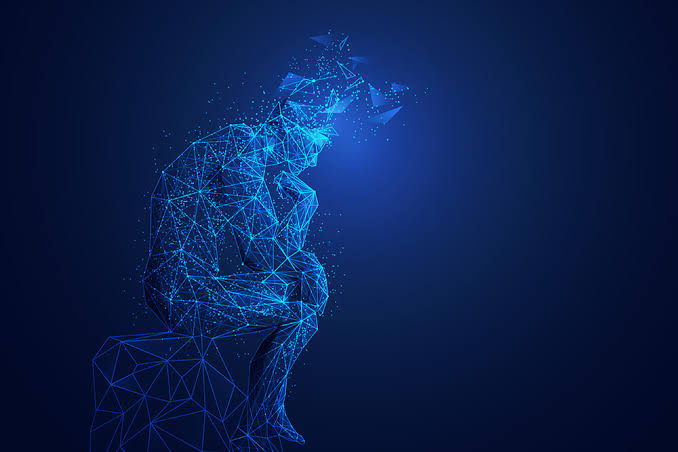The Inherent Design Flaw of AI
By Tobi Akanni
In our rapidly changing world, the use of AI is yet to peak but that may not be for long. It is here to stay, and as humans have done for ages, we will adapt to its presence.
Hearing 'AI' conjures ideas of a futuristic world—mechanical and perfect. It is stuff of science fiction. The apex of technology; a point at which humans will have achieved god-like status.
The above is not meant to take away from the categories of AI that exist, nor does it seek to present AI as some apocalyptic or conspiratorial phenomenon. AI societies may be totalitarian and sterile in the movies, but our world is far from such, and we likely still have hundreds, if not thousands, of years until then, if at all.
What is AI?
Artificial intelligence or AI according to Merriam-Webster dictionary is 'a branch of computer science dealing with the simulation of intelligent (human) behaviour in computers.'
Should the word "artificial" here be taken to mean a replica, functioning to some degree like an original or a fake, totally unlike an original? I am inclined towards the latter, as I believe there is a design flaw inherent in AI. Some compare AI to other technologies such as a calculator, a blender, or a handset, but it is note-worthy that human intelligence is in a different class of ability compared to manual (counting, rotation) and electrical (transmitting, decoding) functions.
Human intelligence, while producing the output above, is an indivisible whole with interacting parts, resulting from chemicals interplay in the brain. Therefore, you can teach a computer to count or discharge receipts, but you cannot teach it decision-making which require critical thinking, situational awareness, and emotions.
Humans have never attempted to 'invent their intelligence' until now, and our capability for adaptation as a specie is our defining quality. None of our inventions—from the hunter-gatherer to the post-industrial society—has interfered with our civilization because our intelligence has been the basis for these creations. To fashion AI after this blueprint may usher the end of humanity as we know it.
Read Also: How Students Can Leverage ChatGPT to Enhance Academics
AI and the issue of Good vs Bad
There are three types of AI: narrow (single-tasked), general (self-improving), and super (beyond human powers). Narrow AI remains the achievable, but I believe all types will be done and all will come with a design flaw.
Some say that the good of AI depends on its users, but this defence attributes perfection or neutrality to the tool and fails to consider a designer and algorithm bias. For the mono-performing AI, this would mean doing what it's been programmed to do. Netizens have shared their conversations with the ChatGPT bot online, and what almost always seems obvious is the presumptive nature of the bot. That is, it tells people what it thinks they want to hear. When corrected, it admits its mistake or gets defensive, changes its response, gets corrected again and on it goes. In some cases, it even create facts.
For companies whose employees are predominantly male or white, using AI—however well-suited—to select the best resumés based on their workplace organization will present an inclusivity problem. Not the paragon of progress now, is it?
Read Also: ARGUMENTS AGAINST THE USE OF CHATGPT IN ACADEMICS
Some AI tools are used in courtrooms in the US to make judgments, and due to data protection laws, their designers are at liberty to not reveal their product's algorithms. This confidentiality issue, however, poses a contradiction: while AI owners are allowed their privacy, the users often give it permission—to their phones, for example—to operate. This means access to their daily and lifestyle routines and because the AI market is dominated by the G-MAFIA, they can easily influence culture.
AI's not without its benefits; nevertheless, its incorporation into our lives should be approached with awareness of its flaws and some caution.

Tobi Akanni is a sociology student at the Lagos State University.
When she is not writing, you can find her in a library
or at social events. She is also a lover of food and the arts.





